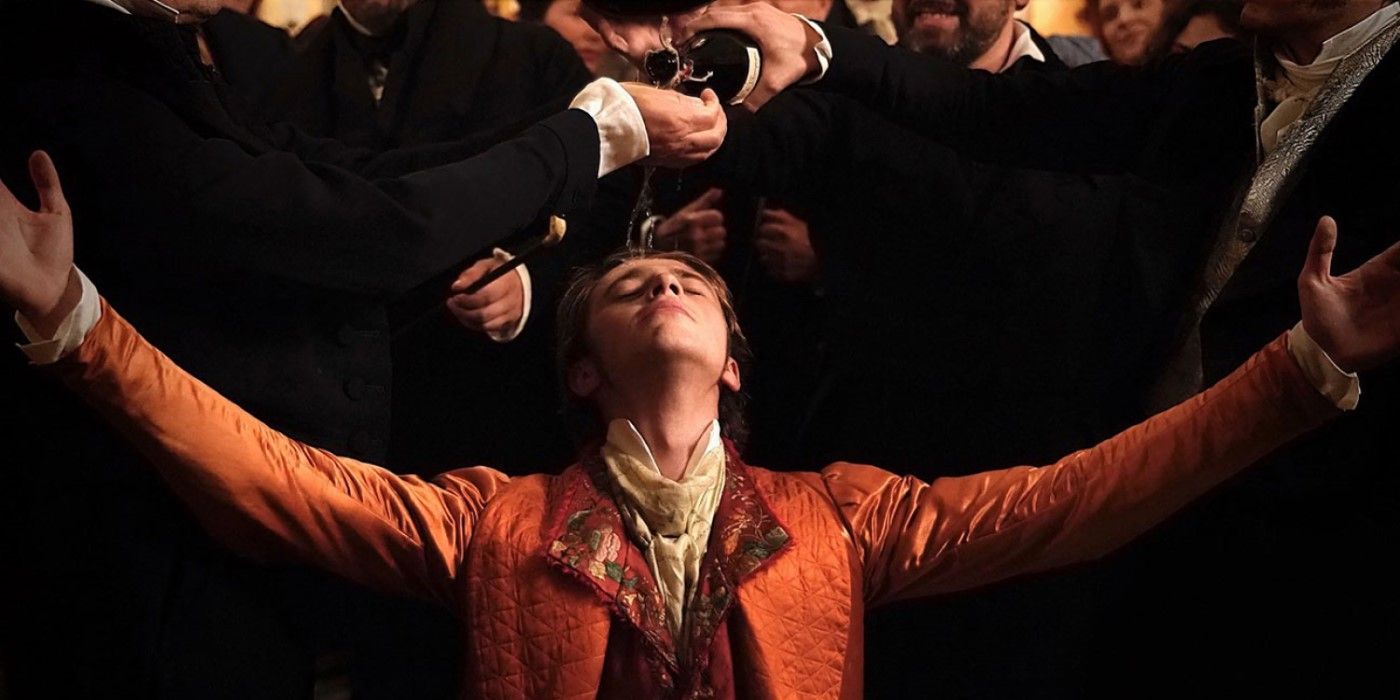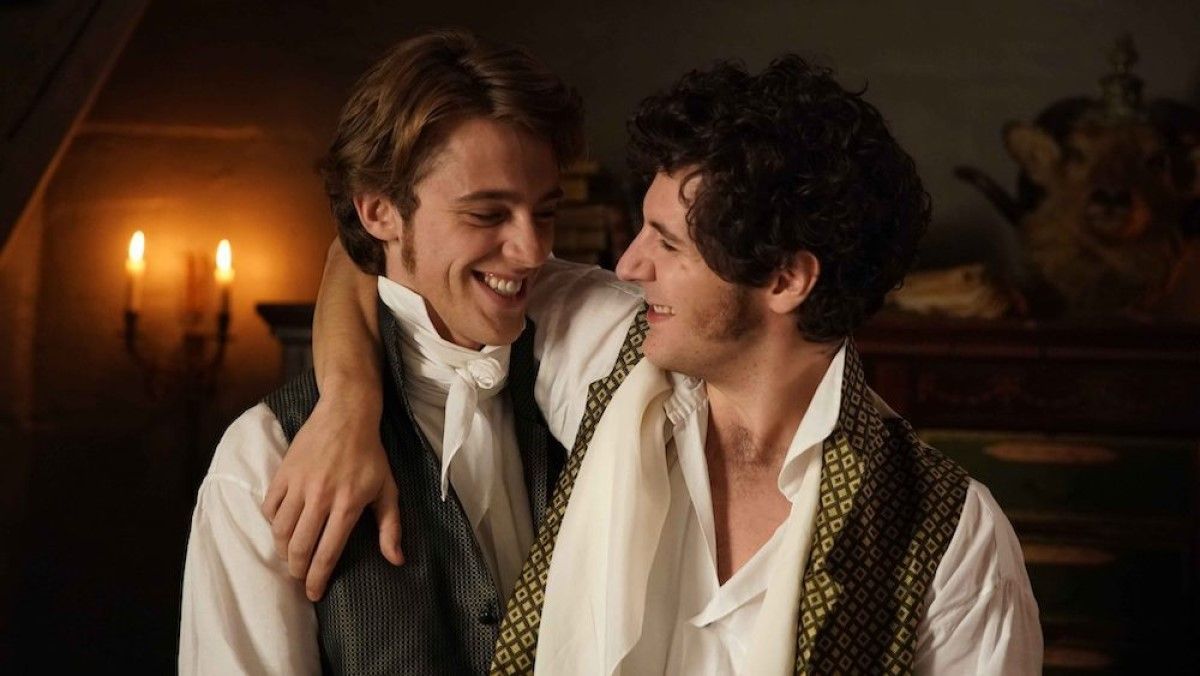Lost Illusions takes the task of adapting Honoré de Balzac's gargantuan masterpiece Illusions Perdues, considered one of the prime works of European realist literature, a work with lots of moving parts, complex characters, and an incomparable portrayal of the City of Lights at a moment in time not often portrayed on screen. Thankfully, director and co-writer Xavier Giannoli adapts the novel to make a provocative, raunchy, exhilarating look at artistic compromise, corruption and ambition, giving us the first gangster movie with critics and journalists as its antiheroes.
Set in 1821 during the Restoration period in France, after a bloody revolution and the Napoleonic Wars, the country is experiencing a period of prosperity. The monarchy may be gone, but class warfare continues to rule the land, with who you know being more important than anything you do, where the wrong look at someone or even the wrong haircut can destroy your reputation. Still, there are ways to advance in society that weren't there before, as the first steps for industrialization allow for more opportunities to cash in and buy your way to the top. “Money was the new royalty, and no one wanted to cut off its head,” the voice-over narrator says early on, and that's the guiding principle for the story of Lost Illusions.
In the middle of all this we find Lucien (Benjamin Voisin), a young man from the countryside hoping to seek fame and fortune in Paris as a poet. He doesn't lack confidence, but he does need etiquette, contacts, and money. He is good at writing though, and when he meets a journalist at a proto-tabloid in the nascent era of mass printed press and independent, liberal publications, Lucien finds that he can make a name for himself with witty criticism.
Giannoli, who co-wrote the script with Jacques Fieschi, use Lucien's story to comment on the power of the press and the idea of fake news not being a new phenomenon. New laws in place allow for sensationalist and provocative publications to attack the noble class, while advertisers and stakeholders are starting to become the most powerful people that no one knows, this makes for a prime opportunity for a young journalist without any morals to make a decent living. Need a positive review of a play? Play favorably, both to a critic willing to spin a positive take, but also to an army of audience members ready to either cheer or boo you out of a career, but don't forget to also allow the critic to write a scathing review for a different publication to spark controversy, because controversy sells.
Lost Illusions' production design brings to life the excess, the glamor, but also the decadence and corruption of Paris after the Revolution. While the higher class dressed in lavish costumes drink in grand clubs filled with extravagant decoration, silver platters, and golden decorations, the streets are literally covered in shut and mud. This juxtaposition is even reflected in the editing of the film, which jumps from long and drawn-out takes in scenes involving the higher class, to rapid-fire cuts in scenes where the lower class journalists, actors and other working-class folks party like there is no tomorrow, with every kind of debauchery imaginable finding its way to the screen. Like the best gangster movies, or indeed even The Wolf of Wall Street, Lost Illusions is all about excess and the way power exposes our darkest impulses. Lucien may not have a killer instinct or a loaded gun like Henry Hill in Goodfellas, but he does have his own version of the Copacabana, a newsroom where monkeys pick the next book to review, and words that can easily cut like knives. Voisin easily sells the charisma and self-boasted confidence of a young, scrappy, and hungry man enamored with a city full of opportunity, and the way he is blinding himself to his mistakes along the way.
Though the film falls into the tired cliche (even if the original novel was published long enough ago that it may not have been a cliche at the time) of critics being just failed artists, Lost Illusions does have an emotional and fond love for the arts, and an admiration for those who speak out in its favor. Still, despite this being a film full of over-the-top moments of fun excess, it is at its most ludicrous when it imagines Lucien writing a whole review of a play right on the spot in front of his friends in a matter of minutes.
Lost Illusions may not break the mold in the way Goodfellas did, but it does provide a fun, provocative, hilarious, and at times even moving rags-to-riches tale with a protagonist and a setting we have not seen before. Whether you're a member of the press who has always imagined having enough power to make people fear your very words, or someone who is sure that critics are bought and paid for by Rotten Tomatoes, Lost Illusions is sure to spark some conversations.
Rating: B+


